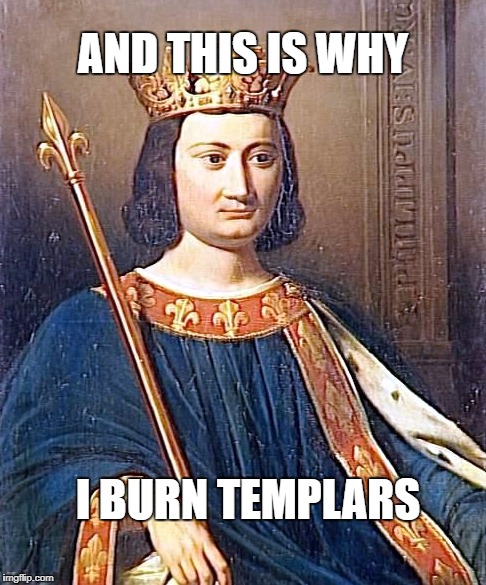Drawing of the early 12th C. Seljuq heavy cavalry army
Sultan
Kilij Arslan of the Rûm Seljuks, despite his young age, was an experienced commander, and desired a great battle to shatter the aura of invincibility of the Christian invaders, whose feats impressed the mightiest lords of Dar-al-Islam. To do so, he made peace with his rival,
Gümüştekin Dānishmand Ahmed Gazi, progenitor of a Turkish dynasty in Sebasteia and Charsianon, and together they marched against the Crusaders. He had attempted to gain the allegiance of Emir Radwan of Aleppo, but received a refusal on the grounds that he was honoring a truce with the Rhomaion Basileus.
A couple days of indecisive engagements near Iconium in June 1101 were followed by a tactical victory of the Christian side, when a sudden downpour of rain thwarted the Turkish favored tactic of horse archery, as their horses trampled in the mud. Kilij Arslan, fearing to have lost the favor of Allah in that day, decided to abandon his capital city and retreat to a safer country in the heart of Asia Minor.
Even in spite of the defeat of their suzerain, the citizens of Iconium resolved to resist the siege, and the battered and irritated Crusaders rearranged their placement to encircle the circuit of walls.
During the siege, the rainy weather suddenly gave way to an unforgiving climate of sun-scorching days and cold nights. The Lombards, enraged by the losses suffered, impatient of awaiting the siege and histeric about a possible Turkish counterattack, pressed for the abandonment of the siege, demanding that they resume their path to Jerusalem. The Germans, in these difficult days, formed a vocal opposition, as did many of the Burgundians, arguing that capturing Iconium was necessary to fulfill their vows to the Emperor, and to ensure a safe transit through Asia, but they remained a minority.
Bishop Anselm IV had fallen into the dangerous trap of demagogy: he started believing his own maniacal vocalizations, proclaiming that he was being visited by the ghosts of the Apostles, who arrogated them to go immediately to Jerusalem. The Italianophone crowd was enraptured by a rather hazardous mixture of paranoia, fanaticism and deprivation, whose effect was multiplied hundredfold by the apocalyptic imagery invoked by the Bishop of Milan. Hardly an unique episode, as the new Christian millenium witnessed a revival of sorts of apocalypticism in western Europe, not seen since the fall of the Roman Empire. The turn-of-the-century periods, in particular, experienced these kind of trends, and Anselm of Milan simply repeated and dramatized popular creeds of the epoch.
In any event, the insistence of the Lombards in marching to Jerusalem provoked a fragmentation of the pilgrim column, with the larger part of the host (not only the Lombards, but many Frenchmen as well) marching eastwards towards Cilicia, while a remnant commanded by Constable Conrad, Count Palatine Stephen of Burgundy, and the Greek general Nikephoros Bryennios in the siege of Iconium, believing that the long-term success of the pilgrimage would depend on the submission of that stronghold.
In this regard, Duke Eudes I of Burgundy, unlike Bishop Anselm IV, was genuinely aware about the necessity of establishing in Iconium a safe point between Europe and Syria, but was, nonetheless, eager to march to Jerusalem, fearing that he might die before reaching it, and decided to follow the Lombards with his own entourage, believing earnestly in the God-given nature of their mission. He was, after all, a veteran of holy wars in Spain, and trusted his life to the will of God. After the expulsion of the Turks from near Iconium, he expected that they would be able to march to Syria unopposed.
In this, he was mistaken, as the Sultan capitalized on the division of the Crusaders to attack.
Anyone might have been tempted to equate Conrad’s reluctance to sheer cowardice (as a certain Italian author viciously remarked: “
the German Constable was like a child that cried in the dark”), but, in hindsight, it proved to be a very sensible decision – so much that he was able to convince Count Stephen of Burgundy to remain in his side instead of marching with the Lombards – and later sources do not attribute to him the grim fate of the expedition.
Whatever the cause: cowardice, premonition, earnest advice from the more experienced Greek allies, the Franconian Constable would, in a matter of weeks, see the hurried return of his former Burgundian and Lombard colleagues, reduced to meager and bloodied parties of desperate survivors after being ambushed by the Turks near the town of Heraclea Cybistra [m. Ereğli], while hundreds of other faithful, over the course of several days, had either been left as corpses in the cragged hills of Asia or submitted to slavery, so far from Jerusalem, and even farther from their homes. Yes... Kilij Arslan had obtained the triumph he desired, and the humiliation of the Crusaders resounded throughout both Dar-al-Islam and Christendom. Bishop Anselm IV had either been killed or enslaved and would later be canonized a martyr, despite the fact that it had been his recklessness the principal cause of the disaster. The Frankish Duke Eudes I of Burgundy also fell in battle, but some of his vassals, led by his kinsman Gislebert of Faucogney, successfully escaped, and hastened back to Iconium.
Even if none of the citizens of Iconium came to witness the defeat of the Lombards and Burgundians, their resolve was strengthened by the news of Crusader defeat, while the morale of the besiegers plummeted.
Some days later, the victorious Turks under Kilij Arslan and Danishmend Ghazi returned to Iconium to harass the besiegers with petty raids. Taking the overall leadership of the expedition, Constable Conrad and Count Palatine Stephen decided the best course would be to abandon the siege altogether. The rebound of the Turks made it impossible to remain encamped near Iconium, and thus the Germans, Burgundians and Lombard survivors returned to Dorylaeum, pressured by the overjoyed Turkish cavalry, and pleaded for reinforcements from Constantinople.
Kilij Arslan then stopped the chase and returned to Iconium to celebrate his victory, believing the expedition to have been terminated.
What he could not have known, however, was that another grand army of armed pilgrims was just now coming from Europe, mainly from France, but also from Aquitaine and Bavaria, accompanied by a Rhomaion veteran army led by Emperor Alexios himself. They arrived in Dorylaeum a week after the army of Conrad and Stephen returned, and, after consolidating their forces, they immediately marched back to Iconium, perhaps expecting to catch the Seljuk Sultan by surprise.


